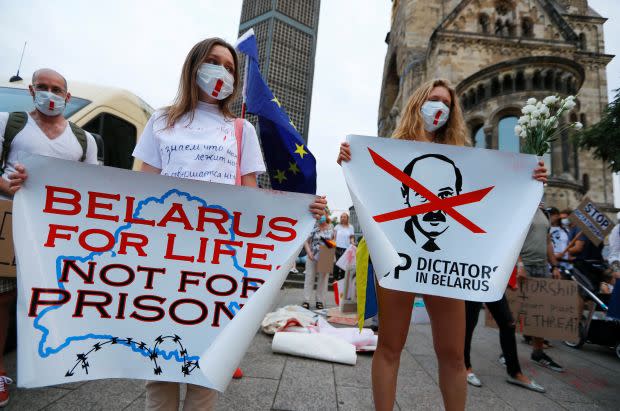Belarus’s crackdown could squash Minsk’s budding tech sector

Over the past two decades, Belarusian software developers and entrepreneurs have built up a prosperous tech hub in the capital city of Minsk. The IT sector offers an alternate way forward in an economy still dominated by Soviet-style collective farms and state-run factories.
But in an open letter, over 2,500 tech workers say the country’s ongoing political repression threatens to wipe out the growing industry, which increasingly serves as a hub for outsourced tech labor for global businesses with household names.
“The conditions are being formed in the country in which a tech business cannot function,” the letter reads, according to a translation from Radio Free Europe. It warns that if conditions don’t change, specialists and tech companies will flee to neighboring countries, taking an economic engine worth more than $3 billion with them. “There is a risk that in a short time all the achievements in the field of high technology will be wiped out.”
Nearly two weeks of mass protest and violent crackdowns have followed the country’s Aug. 9 election, which demonstrators and international observers say was rigged. President Alexander Lukashenko, who has ruled the country for 26 years, has tried to quell demonstrations by cutting off the country’s internet access and jailing thousands of dissidents. Although he stoked hopes of reconciliation when he released most of the imprisoned protesters, he has since ordered a new wave of police raids and declared that there won’t be new elections “until you kill me.”
The situation is challenging for tech workers, many of whom have been very involved in the protests, says Darya Danilava, CEO of Minsk-based RocketData, which helps companies like McDonalds, Nike, and Lego manage their online reviews. “None of us will feel safe if this current president will stay as a leader of the country,” Danilava said. “If [fair elections] will not happen, I think a lot of people will have to change their citizenship.”
She said part of her team has already relocated to Kyiv, Ukraine, both to escape political repression and to keep the company’s work going smoothly during the post-election internet blackouts, which lasted nearly three days. Most firms saw the internet shutdown coming, and found ways to work around it. “I think that for tech companies it was not a very big problem,” Danilava said.
The recent protests mark the end of an uneasy truce between Lukashenko and the tech sector. The dictator, who once called the internet a “pile of garbage,” gradually came to embrace the industry, creating a Minsk tech district in 2005 free from corporate income and value-added taxes. Belarusian tech became a $3.1 billion industry by 2018, employing nearly 50,000 people at relatively high wages. Tech workers prospered, and largely tolerated the administration.
“IT in Belarus was quite out of politics for the last 15 years,” said Michael Dubakov, who founded Minsk-based work management startup Fibery. But now the underlying tensions have come to the surface. “It was hard to fully express your own opinion if it does not somehow comply with the government’s opinion. There was always a risk that it might cause some damage to your business. At some point you just get fed up.”
Many Belarusian tech workers described an industry, and a country, at a crossroads. “It can grow up or it can go down. The businesses, the people, everything here just depends on what happens in the next few days or weeks,” said Dima Blyshchyk, founder of software development startup Mitrix Technology. He says his family and his company will likely move to Poland, Lithuania, or Ukraine if Lukashenko remains in power.
The turmoil in Belarus—one of many countries that have established growing tech hubs as international companies increasingly outsource software development—highlights how a globalized tech workforce can be vulnerable to political upheavals.
But there is also a great deal of optimism for the industry under a new government. Before the elections, tech revenues were already expected to roughly double in size and make up 10% of the country’s GDP by 2022. Danilava, the RocketData CEO, said the outlook would be even rosier if the country held open elections. “Belarus is a country with very talented people and a lot of nice startups, but it was always a big problem to get investment,” she said. But under a new regime, “the investment climate will change and we will have more resources to grow as a country.”
Sign up for the Quartz Daily Brief, our free daily newsletter with the world’s most important and interesting news.
More stories from Quartz:
The world’s money transfer system is China’s Achilles heel in its sanctions battle against the US
Scientists say a new ocean will form in Africa as the continent continues to split into two

 generic
generic 